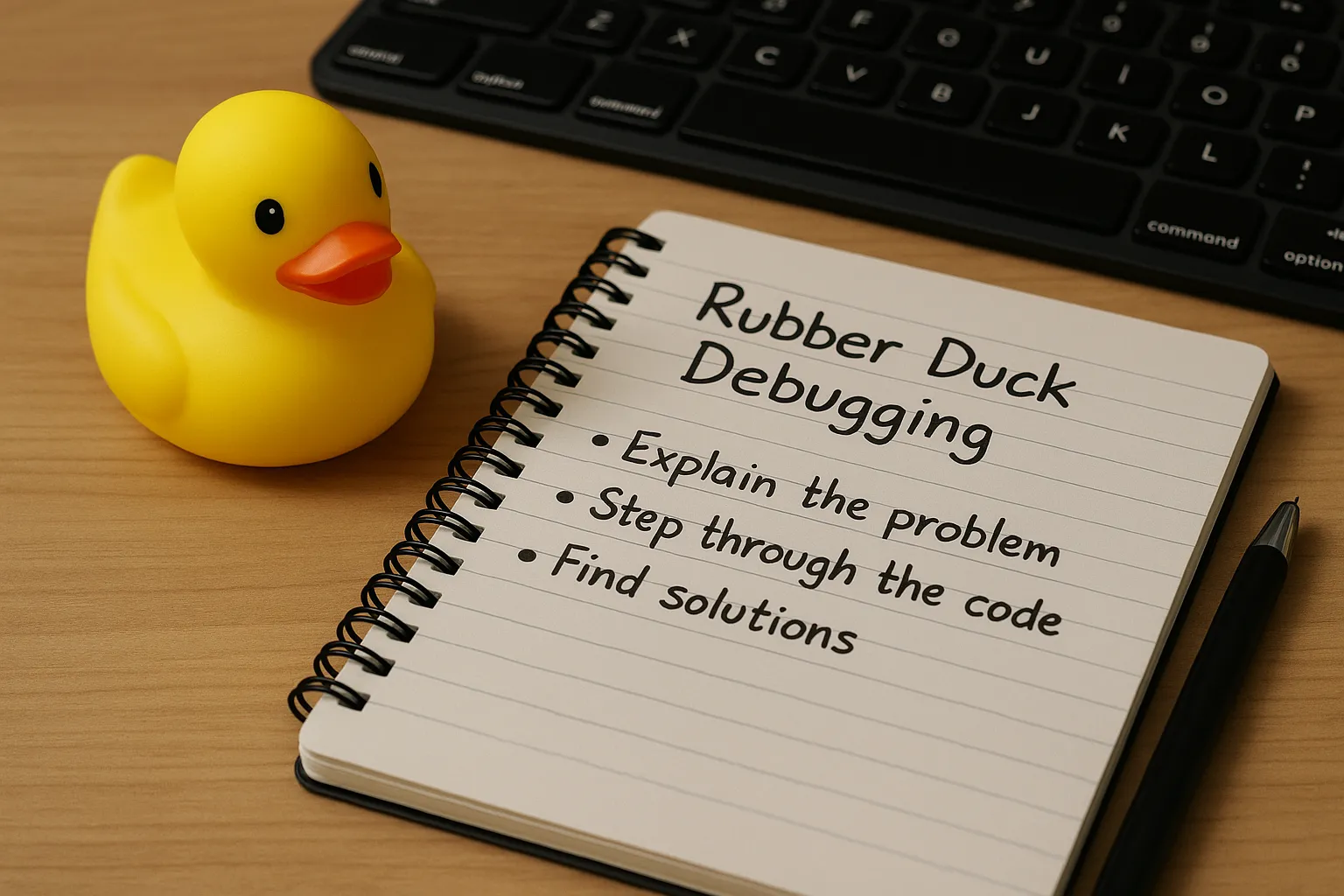🦆 Lessons from Writing Rubber Duck Debugging

Writers and coders share a secret weapon: the humble rubber duck. The practice of “rubber duck debugging” — explaining your code line by line to a small toy — works because it forces clarity. When you put words to your process, you see gaps, catch mistakes, and often solve the problem before you finish talking.
Writing works the same way. Every time we slow down and explain an idea, even to ourselves, we uncover new angles and hidden assumptions. The duck doesn’t need to respond — the act of articulating is what sharpens thought.
📝 Writing as Debugging
When we write, we’re not just recording thoughts — we’re debugging them.
- Drafts expose logical gaps we didn’t notice in our heads.
- Sentences reveal fuzzy assumptions hiding in shorthand.
- Revisions act like refactoring: cleaner, tighter, more efficient.
Just like code, messy writing often “runs” in our head but breaks when we share it. The discipline of writing forces real-world tests of clarity.
🦆 Why the Duck Works
The duck is a stand-in for the reader, client, or future self. Speaking to it has three surprising effects:
- Slows you down enough to notice what doesn’t make sense.
- Forces translation of vague intuition into concrete words.
- Creates a safe, pressure-free space to stumble through messy ideas.
This isn’t about the duck. It’s about accountability. The moment we pretend someone else is listening, we change how we think.
💡 Practical Ways to Use This in Writing
You don’t need an actual duck, though it helps. Try:
- Reading your draft out loud — errors and awkward phrasing jump out.
- Pretending you’re explaining the piece to a smart but uninformed friend.
- Using voice notes to “talk through” a structure before drafting.
- Treating editing as a debugging loop: isolate the broken part, test fixes, rerun.
The goal isn’t perfection — it’s movement from vague to clear, from “in your head” to “on the page.”
🚀 Beyond Writing: Life as Debugging
Rubber duck debugging is more than a writing trick. It’s a mindset. Whether you’re pitching an idea, planning a project, or preparing for a tough conversation, explaining it out loud forces you to face its weak points.
In business, leadership, or creativity, the duck reminds us: clarity comes from expression, not just thought.
🎯 Final Thoughts
Writing isn’t just about words. It’s about debugging your own mind. Each time you force yourself to explain something — to a colleague, to a notebook, or even to a rubber duck — you build sharper thinking and clearer communication.
The next time you’re stuck, don’t wrestle in silence. Grab a duck, start talking, and watch the problem start to solve itself.
